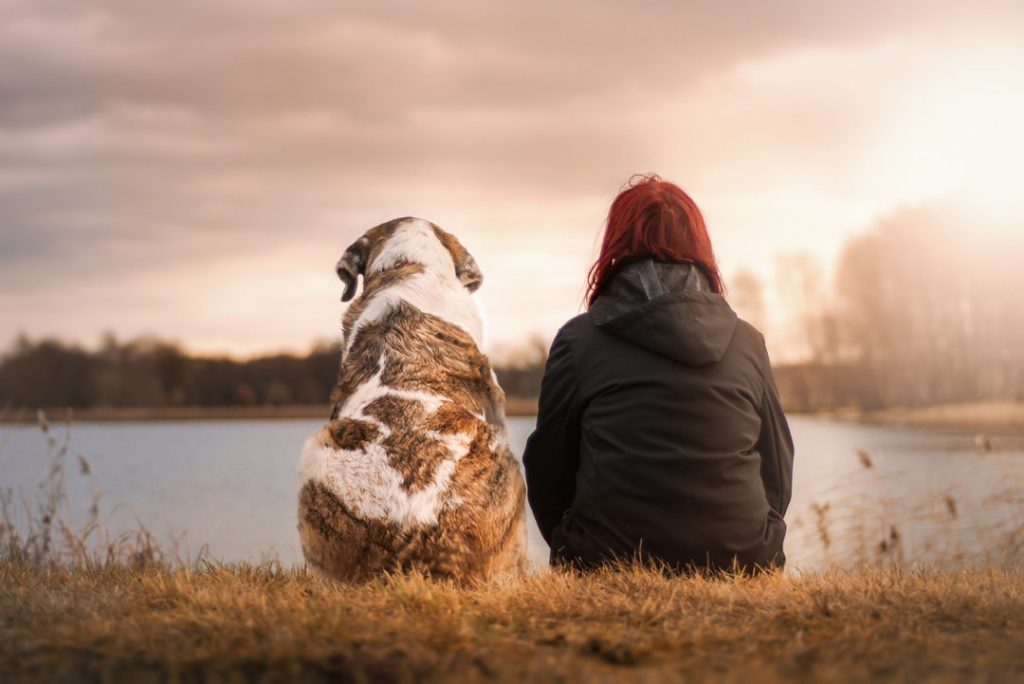BY JOAN MEAD-MATSUI
Helping dog owners deepen their friendship with their canine is a goal Corey Cohen takes seriously.
Cohen, a Hawley resident, is an animal behaviorist and relationship educator, mindfulness teacher, and emotional intelligence instructor, who sheds light on the reasons why pets wander.
“When your dog runs off, they usually are not trying to run away — they love their home and family. They usually are going toward something,” he said via an email interview.
Cohen aims to help pet owners connect with their pets on a deeper level through his businesses, A New Leash on Life Animal Behavior Services (Northeastern Pennsylvania and Northern New Jersey) and Awakenings Meditation (Northeastern Pennsylvania) Mindfulness-Based Animal Behavior Therapy, Path of Friendship programs and his C. A. L. M. (connection – appreciation – love – mindfulness) classes. His classes are intended for people and dogs as empowering alternatives to standard dog training.
As much as we cater to our pets, there are times when our loving canine takes off in pursuit of a squirrel, another neighborhood pet or simple curiosity. Deepening your friendship with your dog is one way to encourage man’s best friend to stay close to home.
How do we achieve a connection? Cohen says establishing a sense of mutual respect is synonymous with seeing your dog as equal.
“Not the same, obviously, but equal in the relationship,” he emphasized. “The deeper the connection, the more secure the attachment, and the more we create a sanctuary friendship, the less difficulties we will have with each other. Working together as a team can resolve behavioral issues that cause many dogs to run away.
As for specific things we can do to deepen the friendship, Cohen suggests a daily or weekly shared mindfulness with our dogs. Pet owners can achieve this by joining their dogs in a present moment experience.
According to Cohen, “Even doing this a short time will drastically increase our connection, and in this way, when our dogs decide to go exploring, we can easily call them back to us for a moment of connection.”
What’s the best way to approach training? Friendship and respect are the keys to unlocking a mutually respectful relationship with your dog.
“Training, therefore, becomes conflict resolution and compassionate guidance. In this relationship, our dogs are motivated intrinsically out of love and concern for us, not because of manipulation or coercion,” he said.
What should dog owners avoid? Cohen advises against using intimidation and punishment tactics and focusing too much on rewards and extrinsic motivation.
“Unfortunately, many of the training methods used actually serve to further distance us from our dogs,” Cohen noted.
When should you begin to forge a new relationship? There is no better time than now during COVID-19 to set the stage for a deeper, long-lasting relationship with your dog.
“Dogs have a remarkable ability to empathize with humans. This is why they have been so successfully integrated into almost every human culture in history,” he said.
Learn more about Cohen at pathoffriendship.com or Facebook.com/pathoffriendship.

SUBMITTED PHOTO
Establishing a sense of mutual respect is synonymous with seeing your dog as equal.
Emergency care
Meanwhile, should your pet need emergency care during the COVID-19 pandemic, the staff at Veterinary Referral and Emergency Center (VREC) has implemented a curb-side process for its patients and clients, according to Nichole A. Danova, DVM, VREC President/Director of Surgery. On March 17 during a scheduled staff meeting, the clinic team members officially discussed the COVID-19 pandemic and its impact on the hospital, staff, clients, patients and community.
“Since late February, this has been a dynamic process and we are all proud that so far we’ve managed to stay in front of the curve,” Dr. Danova said.
While the VREC attempts to see only urgent or life-critical cases or referrals from a primary care veterinarian, Dr. Danova explained the clinic’s role, particularly now during the pandemic, is to serve the community and make life less scary.
“We ask that clients attempt to contact their primary care veterinarian first, but we also recognize many (veterinary) offices closed completely and others have become overwhelmed,” she noted. “We can’t deny that a dog with a cranial cruciate ligament rupture is quite painful, or a cat with an upper respiratory problem and loud breathing, leads to stress for the entire family.”
To facilitate patient visits, while observing current CDC guidelines, Dr. Danova offers important information owners need to know in the event of an emergency.
“As pet parents, physical distancing brings a new relationship challenge because we can’t allow them into the building. Parents should call any time there is a concern or they have a question,” she said.
How do we know when to bring a pet in for treatment?
Keeping in mind, every animal, just like every human is different when it comes to a response to pain or stress. Dr. Danova advises owners to watch for changes in their pet’s behavior, either in excess or the absence of normal.
“Some will hide, some will be in your face needing attention. Some just suddenly sit quietly as if nothing is wrong at all. The big message is if it (the pet’s behavior) is out of the ordinary.”




